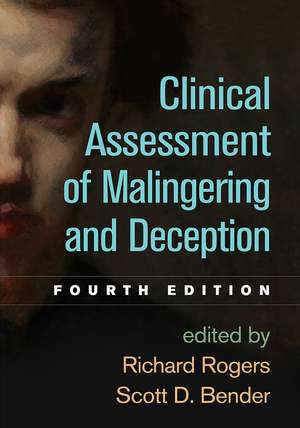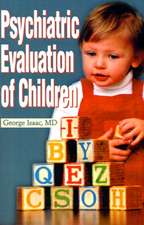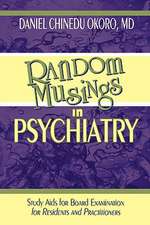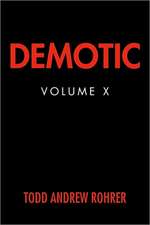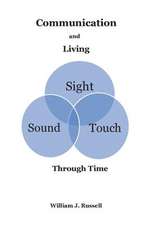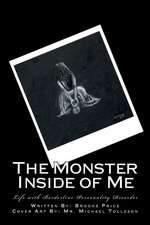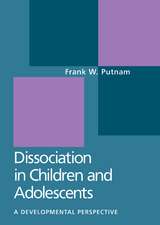Clinical Assessment of Malingering and Deception, Fourth Edition
Editat de Richard Rogers, Scott D. Benderen Limba Engleză Paperback – 22 iun 2020
Widely used by practitioners, researchers, and students--and now thoroughly revised with 70% new material--this is the most authoritative, comprehensive book on malingering and other response styles. Leading experts translate state-of-the-art research into clear, usable strategies for detecting intentional distortions in a wide range of psychological and psychiatric evaluation contexts, including forensic settings. The book examines dissimulation across multiple domains: mental disorders, cognitive impairments, and medical complaints. It describes and critically evaluates evidence-based applications of multiscale inventories, other psychological measures, and specialized methods. Applications are discussed for specific populations, such as sex offenders, children and adolescents, and law enforcement personnel.
New to This Edition
*Many new authors and topics.
*Thoroughly updated with current data, research methods, and assessment strategies.
*Chapters on neuropsychological models, culturally competent assessments, psychopathy, and conversion disorder.
*Chapters on psychological testing in child custody cases and in personnel selection/hiring.
New to This Edition
*Many new authors and topics.
*Thoroughly updated with current data, research methods, and assessment strategies.
*Chapters on neuropsychological models, culturally competent assessments, psychopathy, and conversion disorder.
*Chapters on psychological testing in child custody cases and in personnel selection/hiring.
Preț: 386.49 lei
Nou
Puncte Express: 580
Preț estimativ în valută:
73.96€ • 76.93$ • 61.06£
73.96€ • 76.93$ • 61.06£
Carte disponibilă
Livrare economică 24 martie-07 aprilie
Livrare express 08-14 martie pentru 59.02 lei
Preluare comenzi: 021 569.72.76
Specificații
ISBN-13: 9781462544189
ISBN-10: 1462544185
Pagini: 656
Dimensiuni: 178 x 254 x 32 mm
Greutate: 1.14 kg
Ediția:4 ed
Editura: Guilford Publications
Colecția Guilford Press
ISBN-10: 1462544185
Pagini: 656
Dimensiuni: 178 x 254 x 32 mm
Greutate: 1.14 kg
Ediția:4 ed
Editura: Guilford Publications
Colecția Guilford Press
Public țintă
Professional and Professional Practice & DevelopmentCuprins
I. Conceptual Framework
1. An Introduction to Response Styles, Richard Rogers
2. Detection Strategies for Malingering and Defensiveness, Richard Rogers
3. Neuropsychological Models of Feigned Cognitive Deficits, Scott D. Bender & Richard Frederick
4. Beyond Borders: Cultural and Transnational Perspectives of Feigning and Other Response Styles, Amor A. Correa
II. Diagnostic Issues
5. Syndromes Associated with Deception, Michael J. Vitacco
6. Malingered Psychosis, Phillip J. Resnick & James L. Knoll IV
7. Malingered Traumatic Brain Injury, Scott D. Bender
8. Denial and Misreporting of Substance Abuse, Lynda A. R. Stein, Richard Rogers, & Sarah Henry
9. Psychopathy and Deception, Nathan D. Gillard
10. The Malingering of Posttraumatic Disorders, Phillip J. Resnick, Sara G. West, & Chelsea N. Wooley
11. Factitious Disorders in Medical and Psychiatric Practices, Gregory P. Yates, Mazheruddin M. Mulla, James C. Hamilton, & Marc D. Feldman
12. Conversion Disorder and Illness Deception, Richard Kanaan
13. Feigned Medical Presentations, Robert P. Granacher, Jr., & David T. R. Berry
III. Psychometric Methods
14. Assessment of Malingering and Defensiveness on the MMPI-2 and MMPI-2-RF, Dustin B. Wygant, Brittany D. Walls, Stacey L. Brothers, & David T. R. Berry
15. Response Style on the Personality Assessment Inventory and Other Multiscale Inventories, Marcus T. Boccaccini & Jessica R. Hart
16. Dissimulation on Projective Measures: An Updated Appraisal of a Very Old Question, Kenneth W. Sewell & Ashley C. Helle
17. Feigned Amnesia and Memory, Richard Frederick
18. Assessment of Feigned Cognitive Impairment Using Standard Neuropsychological Tests, Natasha E. Garcia, Chelsea M. Bosch, Brittany D. Walls, & David T. R. Berry
IV. Specialized Methods
19. Assessing Deception: Polygraph Techniques and Integrity Testing, William G. Iacono & Christopher J. Patrick
20. Recovered Memories of Childhood Sexual Abuse, Richard J. McNally
21. Detection of Deception in Sex Offenders, Philip H. Witt & Daniel J. Neller
22. Structured Interviews and Dissimulation, Richard Rogers
23. Brief Measures for the Detection of Feigning and Impression Management, Glenn Smith
V. Specialized Applications
24. Deception in Children and Adolescents, Randall T. Salekin, Franz A. Kubak, Zina Lee, Natalie Harrison, & Abby P. Clark
25. Use of Psychological Tests in Child Custody Evaluations: Effects of Validity Scale Scores on Evaluator Confidence in Interpreting Clinical Scales, Jonathan W. Gould, Sol Rappaport, & James R. Flens
26. Malingering: Considerations in Reporting and Testifying about Assessment Results, Eric Y. Drogin & Carol S. Williams
27. Evaluating Deceptive Impression Management in the Workplace, Julia Levashina
28. Assessment of Law Enforcement Personnel: The Role of Response Styles, Rebecca L. Jackson & Kimberly S. Harrison
VI. Summary
29. Current Status of the Clinical Assessment of Response Styles, Richard Rogers
30. Researching Response Styles, Richard Rogers
Author Index
Subject Index
1. An Introduction to Response Styles, Richard Rogers
2. Detection Strategies for Malingering and Defensiveness, Richard Rogers
3. Neuropsychological Models of Feigned Cognitive Deficits, Scott D. Bender & Richard Frederick
4. Beyond Borders: Cultural and Transnational Perspectives of Feigning and Other Response Styles, Amor A. Correa
II. Diagnostic Issues
5. Syndromes Associated with Deception, Michael J. Vitacco
6. Malingered Psychosis, Phillip J. Resnick & James L. Knoll IV
7. Malingered Traumatic Brain Injury, Scott D. Bender
8. Denial and Misreporting of Substance Abuse, Lynda A. R. Stein, Richard Rogers, & Sarah Henry
9. Psychopathy and Deception, Nathan D. Gillard
10. The Malingering of Posttraumatic Disorders, Phillip J. Resnick, Sara G. West, & Chelsea N. Wooley
11. Factitious Disorders in Medical and Psychiatric Practices, Gregory P. Yates, Mazheruddin M. Mulla, James C. Hamilton, & Marc D. Feldman
12. Conversion Disorder and Illness Deception, Richard Kanaan
13. Feigned Medical Presentations, Robert P. Granacher, Jr., & David T. R. Berry
III. Psychometric Methods
14. Assessment of Malingering and Defensiveness on the MMPI-2 and MMPI-2-RF, Dustin B. Wygant, Brittany D. Walls, Stacey L. Brothers, & David T. R. Berry
15. Response Style on the Personality Assessment Inventory and Other Multiscale Inventories, Marcus T. Boccaccini & Jessica R. Hart
16. Dissimulation on Projective Measures: An Updated Appraisal of a Very Old Question, Kenneth W. Sewell & Ashley C. Helle
17. Feigned Amnesia and Memory, Richard Frederick
18. Assessment of Feigned Cognitive Impairment Using Standard Neuropsychological Tests, Natasha E. Garcia, Chelsea M. Bosch, Brittany D. Walls, & David T. R. Berry
IV. Specialized Methods
19. Assessing Deception: Polygraph Techniques and Integrity Testing, William G. Iacono & Christopher J. Patrick
20. Recovered Memories of Childhood Sexual Abuse, Richard J. McNally
21. Detection of Deception in Sex Offenders, Philip H. Witt & Daniel J. Neller
22. Structured Interviews and Dissimulation, Richard Rogers
23. Brief Measures for the Detection of Feigning and Impression Management, Glenn Smith
V. Specialized Applications
24. Deception in Children and Adolescents, Randall T. Salekin, Franz A. Kubak, Zina Lee, Natalie Harrison, & Abby P. Clark
25. Use of Psychological Tests in Child Custody Evaluations: Effects of Validity Scale Scores on Evaluator Confidence in Interpreting Clinical Scales, Jonathan W. Gould, Sol Rappaport, & James R. Flens
26. Malingering: Considerations in Reporting and Testifying about Assessment Results, Eric Y. Drogin & Carol S. Williams
27. Evaluating Deceptive Impression Management in the Workplace, Julia Levashina
28. Assessment of Law Enforcement Personnel: The Role of Response Styles, Rebecca L. Jackson & Kimberly S. Harrison
VI. Summary
29. Current Status of the Clinical Assessment of Response Styles, Richard Rogers
30. Researching Response Styles, Richard Rogers
Author Index
Subject Index
Notă biografică
Richard Rogers, PhD, ABPP, is Regents Professor of Psychology at the University of North Texas. He is a recipient of the Guttmacher Award from the American Psychiatric Association, the Distinguished Contributions to Forensic Psychology Award from the American Academy of Forensic Psychologists, and the Amicus Award from the American Academy of Psychiatry and Law. In addition, Dr. Rogers is only the fourth psychologist to receive Distinguished Professional Contributions awards for both Applied Research and Public Policy from the American Psychological Association. He is the principal author of the Structured Interview of Reported Symptoms (SIRS) and its second edition (SIRS-2), often considered the premier measure for feigned mental disorders.
Scott D. Bender, PhD, ABPP-CN, is Associate Professor of Psychiatry and Neurobehavioral Science at the University of Virginia (UVA). His primary appointment is with the Institute of Law, Psychiatry, and Public Policy at UVA, where his duties include teaching, research, and conducting forensic neuropsychological evaluations. Dr. Bender has published extensively, and his research focuses on differential diagnosis of malingering and the effects of traumatic brain injury on neurocognitive and emotional functioning. He frequently testifies on these and related matters in both criminal and civil cases.
Scott D. Bender, PhD, ABPP-CN, is Associate Professor of Psychiatry and Neurobehavioral Science at the University of Virginia (UVA). His primary appointment is with the Institute of Law, Psychiatry, and Public Policy at UVA, where his duties include teaching, research, and conducting forensic neuropsychological evaluations. Dr. Bender has published extensively, and his research focuses on differential diagnosis of malingering and the effects of traumatic brain injury on neurocognitive and emotional functioning. He frequently testifies on these and related matters in both criminal and civil cases.
Recenzii
"With the addition of the neuropsychological perspective, this fourth edition includes everything a legal or clinical practitioner needs to know about the state of the art in deception detection. The assembled authors are impressive, and Rogers and Bender are acknowledged leaders in the field. Do not go into court in a case involving behavioral science issues without consulting this book."--Christopher Slobogin, JD, LLM, Milton Underwood Professor of Law, Vanderbilt University Law School
"The premier work on malingering and deception just got better! The fourth edition of this classic book provides up-to-date, insightful coverage of one of the most important topics in forensic mental health assessment. Rogers and Bender have assembled a world-class cast of contributors with broad research and clinical expertise. The fourth edition includes new chapters on cutting-edge topics, including neuropsychological models of feigned cognitive deficits, psychopathy, child custody, personnel selection, and more. This book is both scholarly and practical, which makes it attractive to students and experienced professionals alike. This is much more than a 'bookshelf' book--it is essential, indispensable reading for those who are or will be involved in conducting forensic mental health assessments."--David DeMatteo, JD, PhD, ABPP, Department of Psychology and Thomas R. Kline School of Law, Drexel University
"Clinicians and forensic practitioners will welcome the fourth edition of this book, particularly in the face of growing concern about the liability that may attend unwarranted use of the ‘malingering’ label. The stellar cast of contributors explores the terrain sensitively and with scholarly incisiveness, assuring the book's appeal to forensic psychology and psychiatry trainees.”--Ezra E. H. Griffith, MD, Professor Emeritus of Psychiatry and African American Studies, Yale School of Medicine
-This is an excellent book written by experts in the field. It covers deception in various populations, along with both psychological and medical illnesses. The fourth edition is justified because of the new chapters on neuropsychology and cultural assessments, along with revisions in the remaining chapters. *****!--Doody's Review Service, 10/12/2018ƒƒThis excellent and standard reference [occupies] a crucial space on many forensic psychiatrists' and psychologists' bookshelves....Useful in clinical practice, especially in institutions that serve forensic or correctional populations. (on the third edition)--Journal of Psychiatric Practice, 1/1/2008ƒƒThis is a rich volume that provides information and assessment strategies for patients who may be clinical challenges and enigmas. It is a lucid, well-written and helpful volume. (on the third edition)--International Journal of Social Psychiatry, 1/1/2013ƒƒAkin to the eminence of the late Hervey Cleckley or Robert Hare as authorities on the topic of psychopathy, it is not unreasonable to accord Professor Richard Rogers analogous status as one of the world's leading scholars on the assessment of malingering....Professor Rogers's text and the wealth of knowledge he has compiled from an august collection of contributors should be viewed as a mandatory item for all forensic mental health practitioners. (on the third edition)--International Journal of Offender Therapy and Comparative Criminology, 2/1/2010"The premier work on malingering and deception just got better! The fourth edition of this classic book provides up-to-date, insightful coverage of one of the most important topics in forensic mental health assessment. Rogers and Bender have assembled a world-class cast of contributors with broad research and clinical expertise. The fourth edition includes new chapters on cutting-edge topics, including neuropsychological models of feigned cognitive deficits, psychopathy, child custody, personnel selection, and more. This book is both scholarly and practical, which makes it attractive to students and experienced professionals alike. This is much more than a 'bookshelf' book--it is essential, indispensable reading for those who are or will be involved in conducting forensic mental health assessments."--David DeMatteo, JD, PhD, ABPP, Department of Psychology and Thomas R. Kline School of Law, Drexel University
"Clinicians and forensic practitioners will welcome the fourth edition of this book, particularly in the face of growing concern about the liability that may attend unwarranted use of the ‘malingering’ label. The stellar cast of contributors explores the terrain sensitively and with scholarly incisiveness, assuring the book's appeal to forensic psychology and psychiatry trainees.”--Ezra E. H. Griffith, MD, Professor Emeritus of Psychiatry and African American Studies, Yale School of Medicine
Descriere
Widely used by practitioners, researchers, and students--and now thoroughly revised with 70% new material--this is the most authoritative, comprehensive book on malingering and other response styles. Leading experts translate state-of-the-art research into clear, usable strategies for detecting intentional distortions in a wide range of psychological and psychiatric evaluation contexts, including forensic settings. The book examines dissimulation across multiple domains: mental disorders, cognitive impairments, and medical complaints. It describes and critically evaluates evidence-based applications of multiscale inventories, other psychological measures, and specialized methods.
